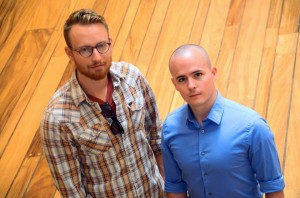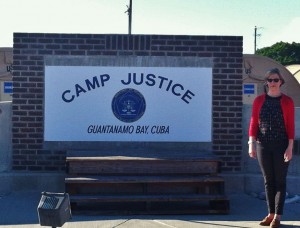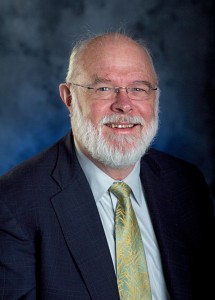Roderick Campbell ’10 and Jay Bolton ’11 never crossed paths while at Evergreen, but with more than $700,000 in seed investment from the likes of Mark Cuban and Tim Draper, this odd couple has taken internet startup CommitChange to the Major Leagues of Silicon Valley.
Roderick described the way he came to partner with Jay as an “arranged marriage” by Merchant OS, now a part of LightSpeed Retail. Merchant OS was a client of Roderick’s small web development business, which helped Campbell pay for school. Fatefully, Jay was an intern with the company at the same time. To this day, Roderick and Jay still remember the offer of a year’s salary to do whatever they wanted, as long as it was with each other, as the most bizarre offer they’ve ever received. But that’s when the seed of CommitChange was born.
While Roderick and Jay are business partners now, they took vastly different paths to where they are today. Roderick was a theatre student at Evergreen, studying with faculty like Sean Williams, a big influence for Roderick. While a student, Roderick was the Assistant Director of local theatre fixture Harlequin Productions. Roderick took advantage of travel opportunities while he had them, traveling to 32 countries, and spending two to three months abroad every year since high school.
Meanwhile, Roderick describes Jay as “the smartest guy he’s ever met,” even in the one of the world’s leading hubs for high tech innovation and development. Jay studied computer science at Evergreen, and Roderick described him as a person who can “learn a new computer programming language in a weekend; someone who can build anything.”
When they started working together, under contract with the booming Merchant OS, they keyed in on an app which allowed consumers to pay rent online. Several months into their work, they had something of an ‘aha’ moment and went back to the drawing board. Their goal: a billion dollar company that could help a billion people. Otherwise, they might as well work for Google, Campbell conceded.
They came up with an idea for supporting non-profit philanthropy efforts. The reason: Roderick estimates that over 2 billion people on the planet are directly impacted by non-profits. When they performed an environmental scan of the products and services available for non-profit development, Campbell described an industry stuck using old technology and widespread lack of innovation. With the fees companies levy on non-profits for online fundraising, Roderick discovered it is often less efficient than using direct mail! CommitChange aspires to develop a product for non-profit philanthropy in the way that Linkedin is the product for professional networking. With the right technology and product at the right price, they believe non-profits will move more of their fundraising efforts online.
While Roderick and Jay are far from where they were when they first started CommitChange on the top floor of the Evergreen Plaza Building in downtown Olympia, Roderick insists Evergreen is “the most underrated school in the country” and is hopeful to hire Evergreen students as his company grows in the years ahead. Roderick Campbell and Jay Bolton are definitely two young alumni worth watching for.
Read more about Roderick and Jay in The Olympian, linked here.





